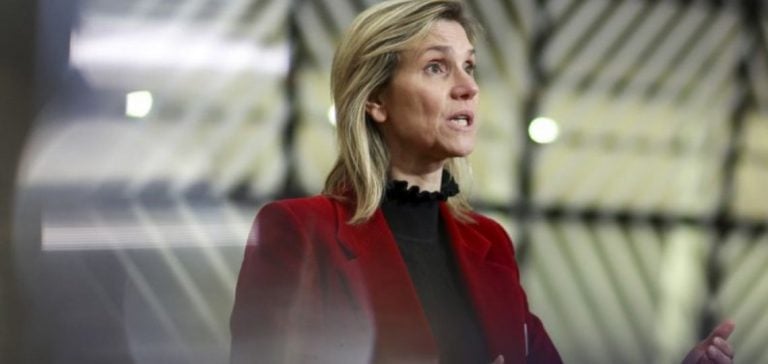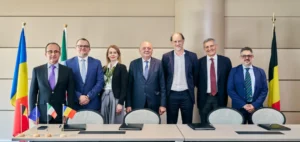Agnès Pannier-Runacher, appointed Minister of Ecological Transition and Energy in 2024, is establishing herself as a key figure in French energy strategy.
Since taking up her post at the Ministry of Energy Transition in May 2022, she has steered the main reforms linked to the revival of nuclear power and the management of energy crises, notably the blackout threats of winter 2022/2023.
Her appointment comes as no surprise to industry observers. Coming from a solid background in senior administration and industry, Pannier-Runacher has demonstrated her ability to manage complex dossiers, starting with the crisis of plant closures and industrial shortages during the Covid-19 pandemic, then as Minister Delegate for Industry.
Her mastery of energy issues was particularly evident when she took charge of France’s nuclear revival.
The revival of nuclear power, a pillar of the energy strategy
Since his arrival at the head of the Ministry, the revival of nuclear power has been a strategic priority.
France’s nuclear fleet, which has long been a major asset for energy sovereignty, requires heavy investment to modernize aging infrastructures.
Pannier-Runacher is responsible for overseeing the implementation of new reactor projects, while guaranteeing the long-term safety and profitability of this energy source.
She also plays a leading role in European negotiations, defending a reform of the electricity market that safeguards the interests of the French nuclear industry.
This reform is crucial if France is to continue to benefit from low-cost energy, particularly in the face of volatile natural gas prices.
The Minister has succeeded in establishing nuclear power as an indispensable solution for meeting the country’s energy needs, while respecting decarbonization objectives.
Political and climatic challenges
While Agnès Pannier-Runacher is often hailed for her in-depth knowledge of energy issues, she is also faced with complex political challenges.
As France’s representative at international climate negotiations, she defended the role of nuclear power at COP28 in Dubai, while responding to criticism about nuclear waste management and the investment needed to modernize infrastructure.
On a national scale, she has to manage budgetary constraints while promoting an energy transition that incorporates not only nuclear power, but also renewable energies.
Although the government is seeking to diversify the energy mix with wind and solar power, these technologies cannot yet compete with the stability and efficiency of nuclear production.
A long-term vision for energy sovereignty
The strategy pursued by Agnès Pannier-Runacher is part of a long-term vision to guarantee France’s energy independence.
She continues to support the development of new-generation reactors, which are more efficient and less resource-intensive, with the aim of commissioning them by 2030.
This project is central to ensuring the country’s energy stability, while adapting to climate challenges and the volatility of international markets.
At the same time, it manages relations with players in the private sector and public institutions to coordinate the investments required for this revival.
France’s ability to maintain a competitive, low-carbon energy mix depends to a large extent on its success in modernizing its nuclear fleet and integrating new energy technologies consistently into its strategy.





















